Manor Lords is an early access survival city builder where you have to worry about more than harvesting food, building an industry, and surviving the winter. The Manor Lords map is broken into regions, and those regions contain small bandit camps, large brigand forces, and armies guided by other AI-controlled lords looking to conquer new lands for themselves. It's a dangerous world out there!
To get you started on the long road to building your medieval fiefdom, we've put together some beginner tips that will help you navigate the harsh world and the challenges ahead. We've also got some more specific Manor Lords guides you can find linked below.
Before you do anything, check the terrain
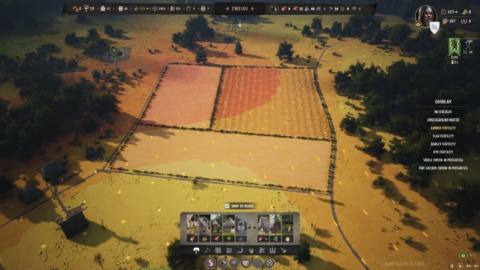
Chris Livingston, Senior Editor: Manor Lords maps are procedurally generated, so each time you start a new town the landscape and its resources will be different. When you open the construction tool a series of overlay options will appear on the right side of your screen showing where the underground water lies, as well as fertility levels for farming emmer (wheat), flax, barley, and rye.
This is useful for pre-planning the location of your wells and farms, but in some cases you might want to bail out, return to the main menu, and start a new map altogether. On one of my maps the crop fertility levels were so low in my starting region that it didn't seem worth even getting started (you can rely on trade, but I prefer to farm). You can acquire other regions later in the game with more favorable resources and fertility levels, but before you build your first burgage, make sure your starter region has what you're looking for.
Leave enough room in your burgage plots for extensions
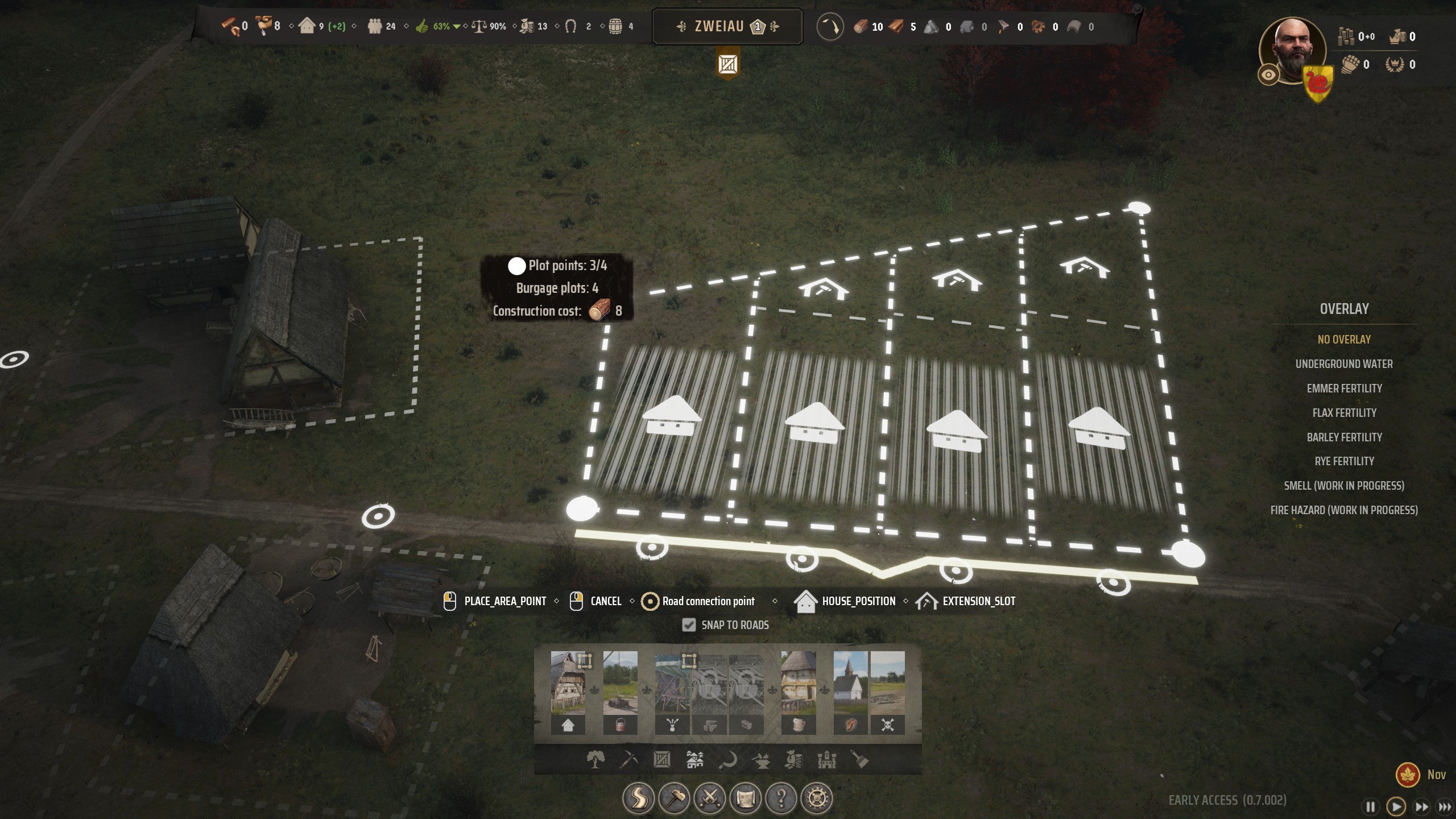
Chris: After a long day of work in the fields, mines, or shops, your citizens will head home. But that doesn't mean their productivity has to end. Housing, called burgage plots, can contain backyard workshops that will passively generate goods: chicken coops for eggs, goats for leather, gardens for vegetables, and even little blacksmith shops for weapons and armor—if you don't mind converting the entire family into artisans. You can activate these burgage extensions and pick what you'd like them to generate provided you meet the requirements.
So when zoning your burgage plots, make sure you leave enough room for the extensions. When you draw your housing zones, you'll see an icon with a hammer in a shed above the shaded area with the house icon if your plot is big enough. See the image above as an example. If you don't see the workshop area, then try again and draw your zoning box bigger.
Invest in a second ox and expand your stable early
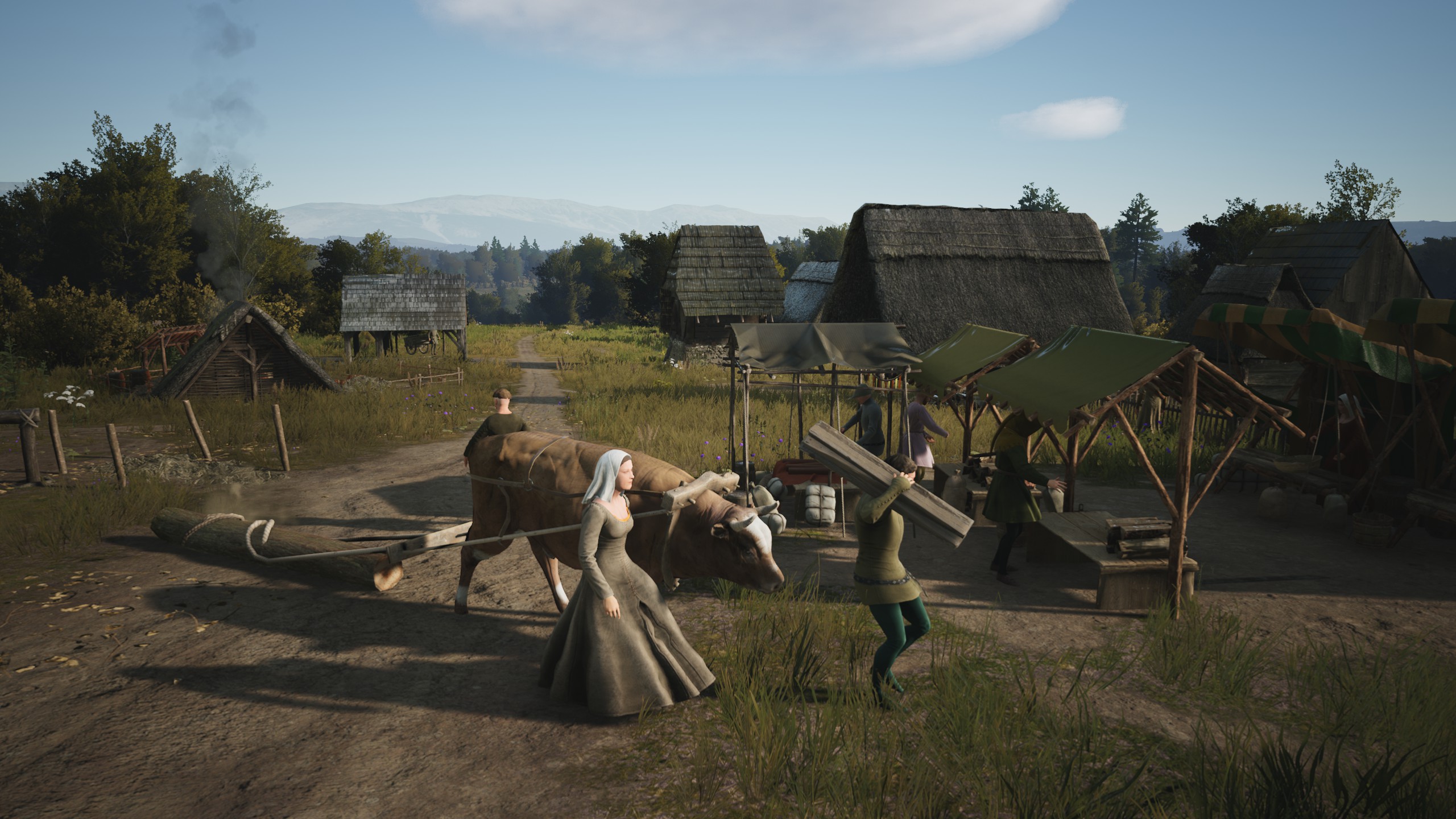
Chris: Building can be a slow process, but don't be impatient with your workers: they're doing their best. First, materials need to be brought to the jobsite, but there's one thing your little citizens can't carry in their arms or pull in a cart: timber. Those huge logs need to be dragged by an ox, and that ox needs to be led by one of your villagers.
One of the first things you can do to speed up the building process is expand your stable with a few planks and buy a second ox with your regional wealth. You can do this at your hitching post, and if you can spare a family to make ox-wrangling their full-time job, that will speed up the process even more. Having an extra ox will also improve the speed of other timber-related tasks, like getting logs to the sawpit so they can be turned into planks.
Fire your farmers for the summer
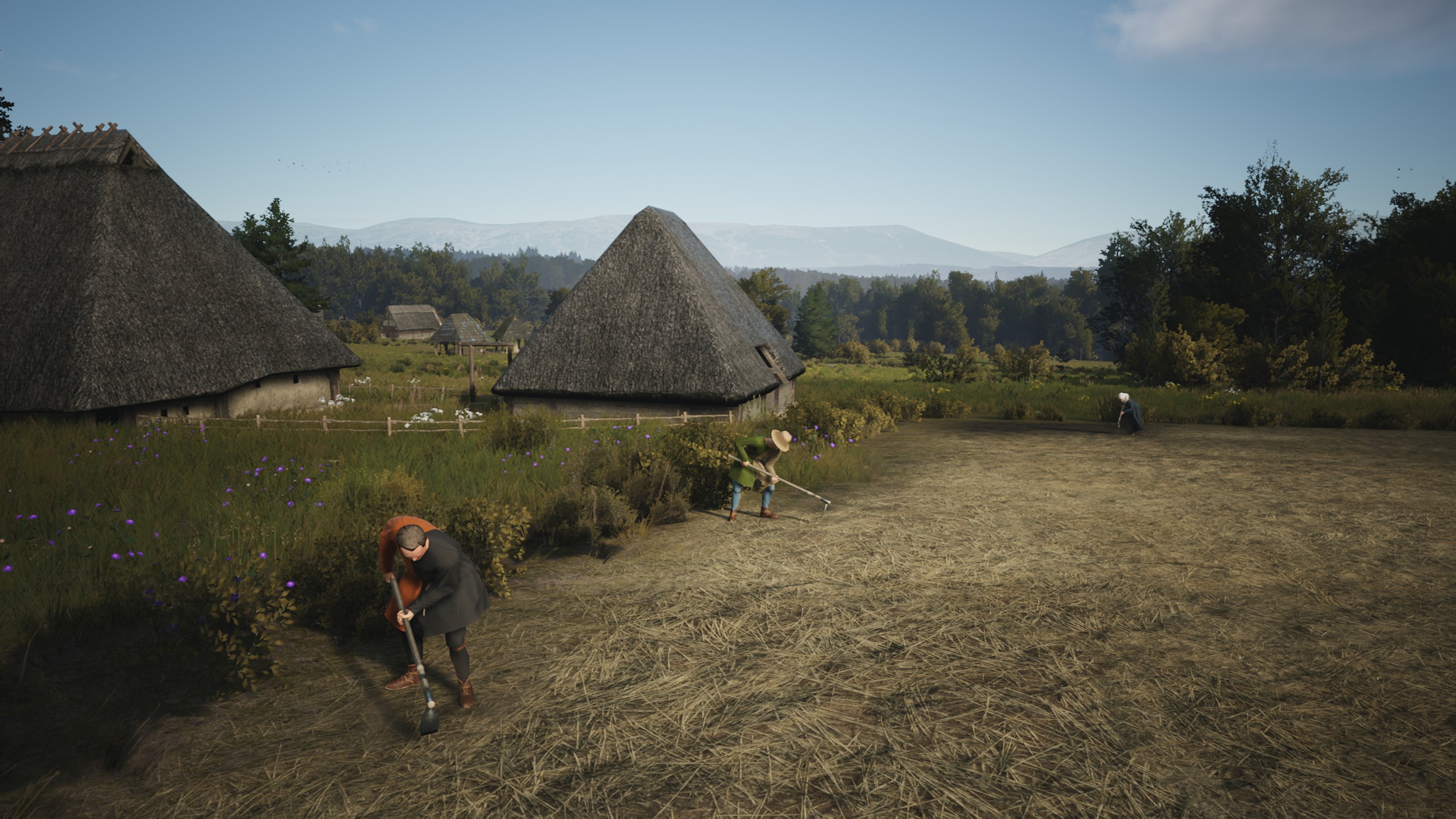
Chris: Farming is important to avoid starvation, but you don't need to keep families in your farmhouse year-round. Fields have four stages: plowing, sowing, crop growth, and harvesting. During the growth stage, nothing needs to be done, so you can unassign villagers from the farmhouse for other trades or just let them be builders.
Just don't forget that when summer ends and September hits, you'll need to put your farmers back to work, or all those crops will die unharvested and your villagers will have a long, miserable winter.
Raid abandoned bandit camps for easy treasury
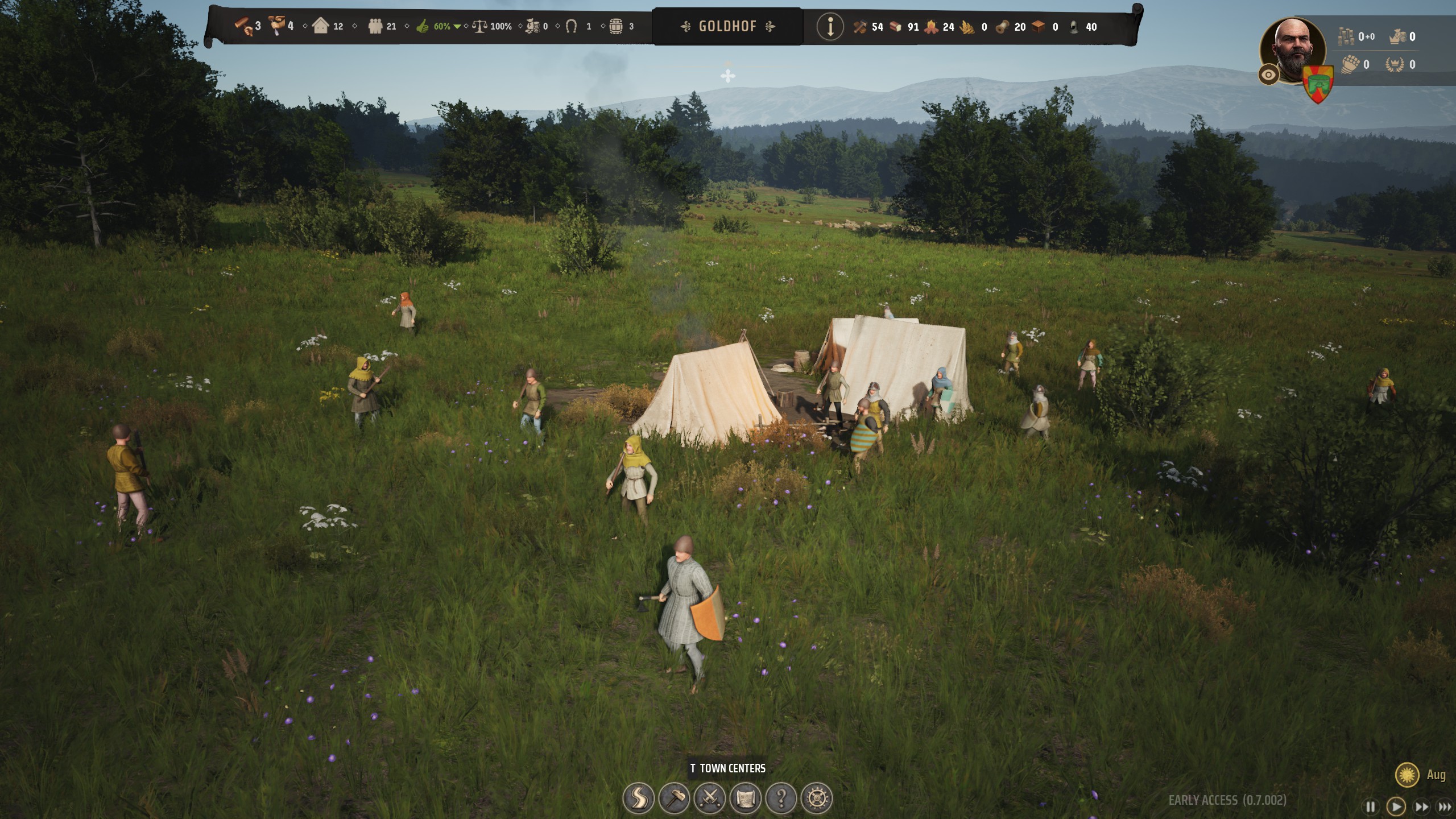
Sean Martin, Guides Writer: While you can tax your population using the manor to slowly build up a tasty pile of treasury, you can also get it by raiding bandit camps. Usually this involves defeating the brigands hanging out there, but sometimes you'll spot abandoned bandit camps on the map. These are easy pickings as you can still destroy them for treasury, but won't have to sacrifice troops to do it. I'd recommend mustering your retinue or hiring some basic brigand mercenaries to trek across the map and dismantle them.
Steal contested regions from other lords
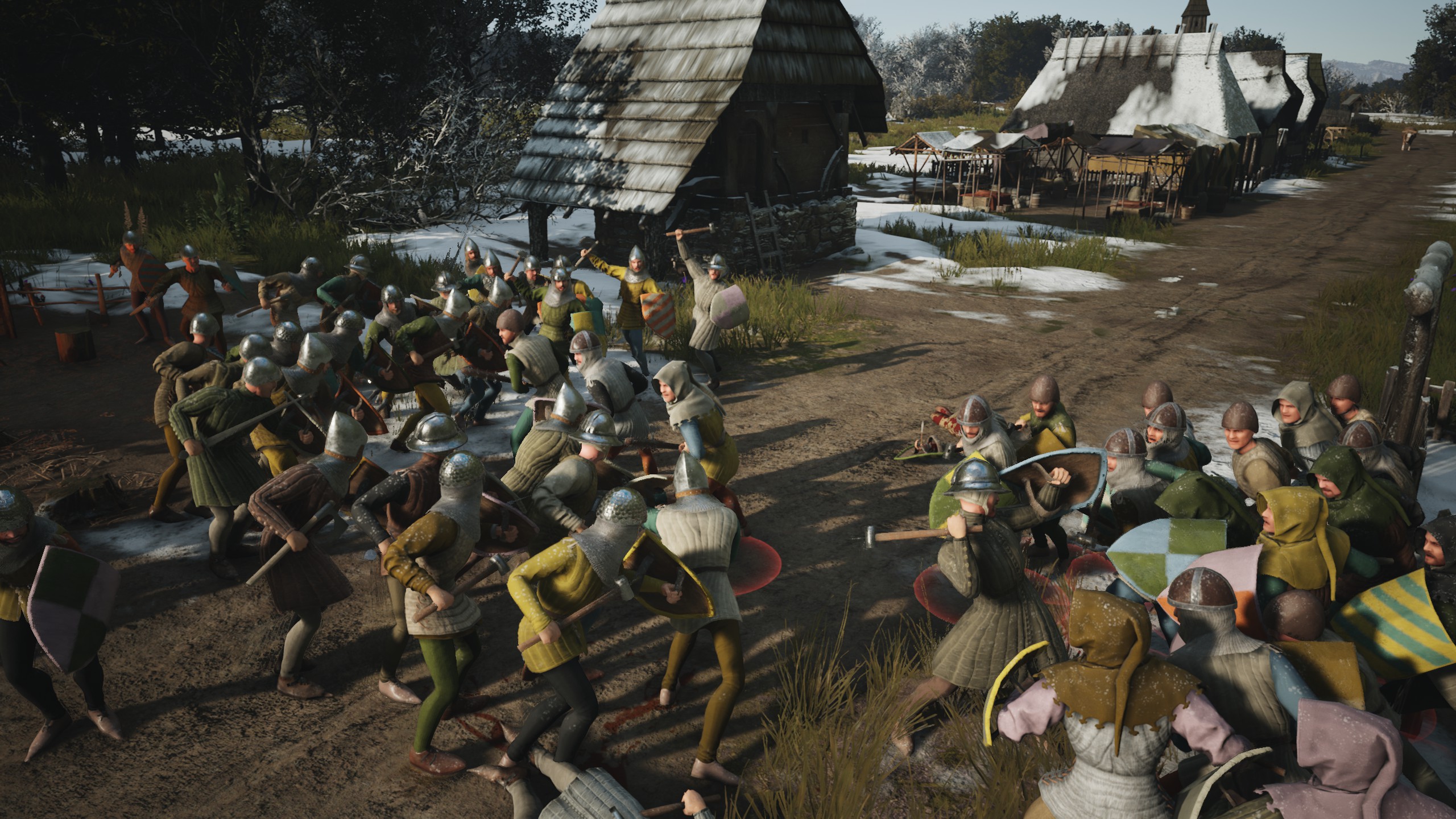
Sean: It costs a lot to settle new regions in Manor Lords. First, you need 1,000 influence to claim the region and then also 250 treasury to set up a settler's camp, and that's assuming the process goes smoothly. While claiming a region, rival lords can contest your claim, meaning you have to duke it out on the battlefield to see who gets ownership. The good news, however, is that this goes both ways. If you contest a lord when they're claiming another region and defeat them in battle, you'll get their region without spending any influence at all, letting you expand even faster.
Staff your granary and storehouse
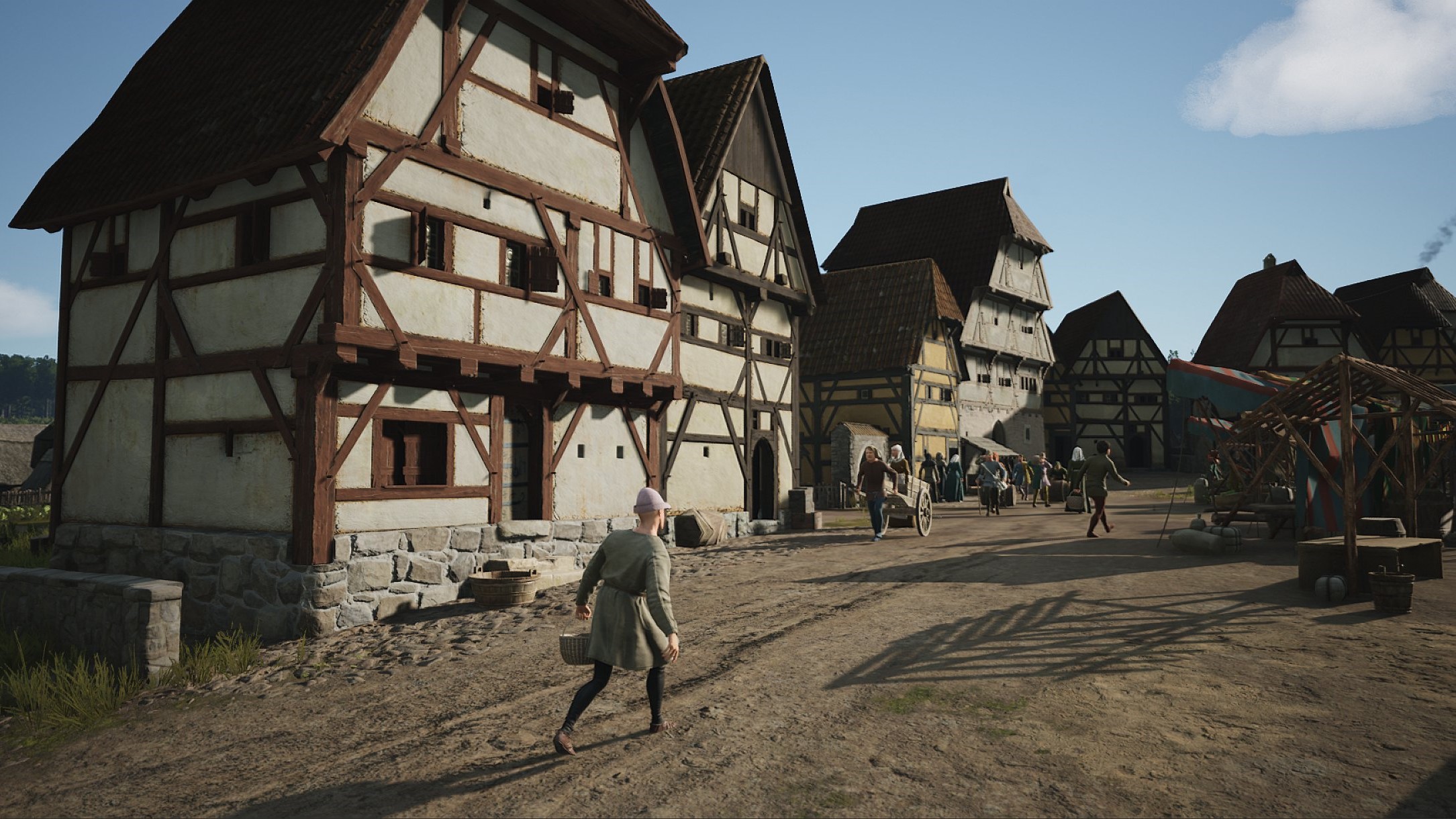
Sean: Making sure your subjects have access to all the goods and lovely food types you're producing is a key part of gaining approval. This is where the marketplace is important, letting your villagers set up stalls to distribute available items to the populace. With that in mind, make sure you place a family in your granary and storehouse. They will do the basic busywork of collecting up supplies and amassing them in one place, but they'll also create a stall on the marketplace that distributes all of them.
There are a lot of items that don't have production buildings or a particular stall, such as the eggs, vegetables, and apples you can passively produce in burgage plots, so staffing these two storage buildings ensures you have complete coverage for resource access.
Get your villagers all boozed up ASAP
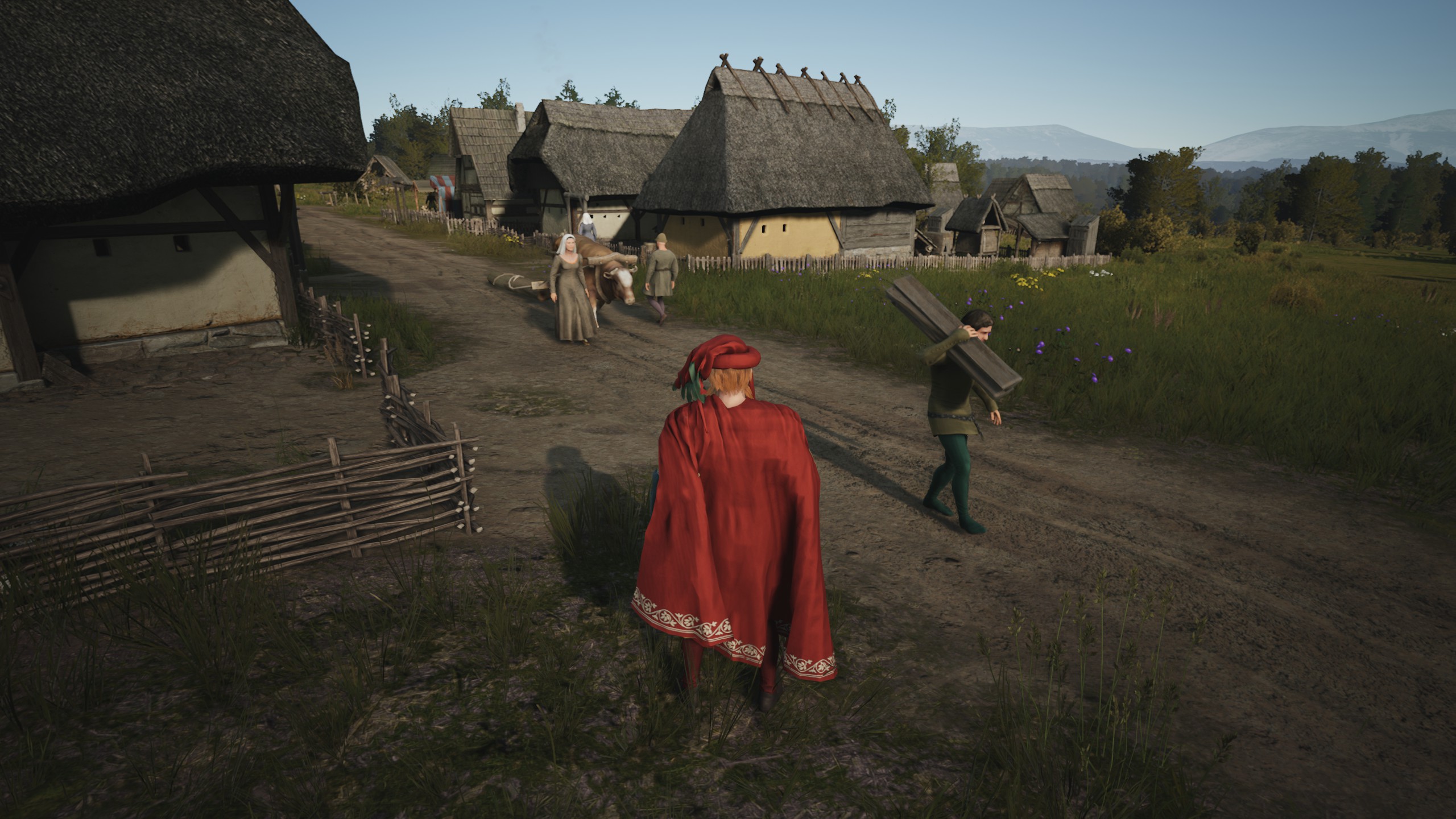
Fraser Brown, Online Editor: Don't make my mistake and wait until you have a big ol' ale production chain set up before you let your villagers get absolutely smashed. The DIY approach means you need to set up barley fields, which might be hard to do in your starting region—like it was in mine—if you can't find anywhere with suitable fertility. That also means building a farmhouse, and filling it with lots of workers—at least if you want it to be effective. With that done, you've then gotta plonk down another building and get a household working to turn that barley into malt. Finally, a brewer is required, which can only be set up in a second tier home. All this needs to happen before you can fill your tavern with booze. Or… you can just buy it and save yourself a lot of trouble.
This isn't a long-term solution, but it means you can start upgrading homes to the third and (so far) final tier, netting yourself more cash and creating more space for residents. Tavern access is probably the most challenging prerequisite that you'll have to fulfill, so it really slows down your progress if you're doing everything yourself—especially if you have to establish a second village in another region just to get enough barley. If you decide to trade instead, all you'll need is the tavern itself. You'll almost certainly have some surplus of another resource to sell, and if you've been clearing out bandits and giving that cash back to the village, you should be able to afford to splash out.
Embrace the gig economy
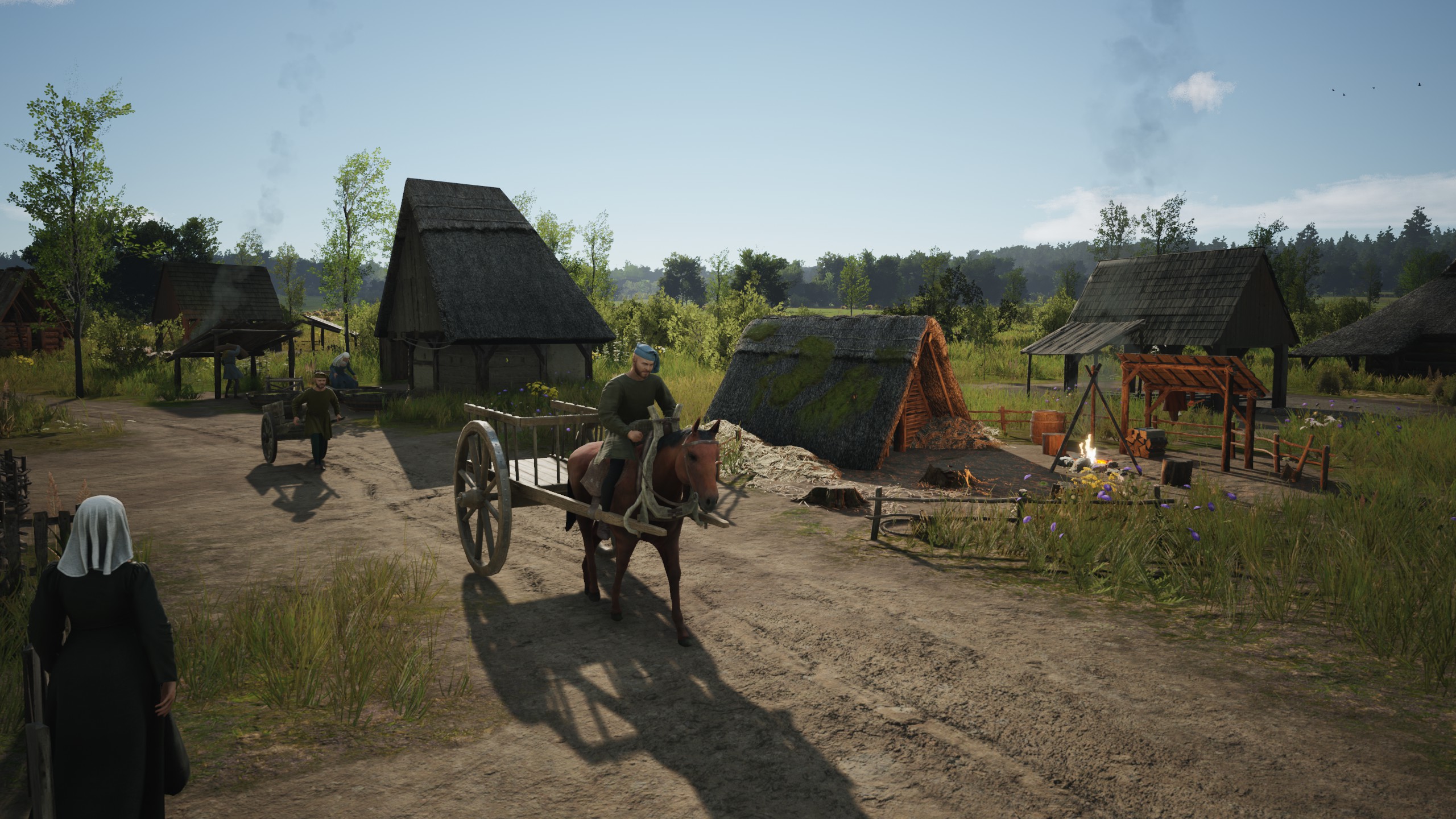
Fraser: I know, I know—the gig economy is awful and exploitative, and profiting from it probably means you're a bit of an arsehole. But you're a feudal lord—you're already an arsehole! So embrace the gig economy and strip your villagers of their precious job security. If you need some ceramic tiles for the church, you're not going to need a bunch of households dedicated to digging up clay forever. Once you've got what you need, shut the building down and put those households back into the worker pool so they can help with construction when needed, or give them another more critical job. You don't need to have every building and service up and running 24/7.
Ease up on taxation
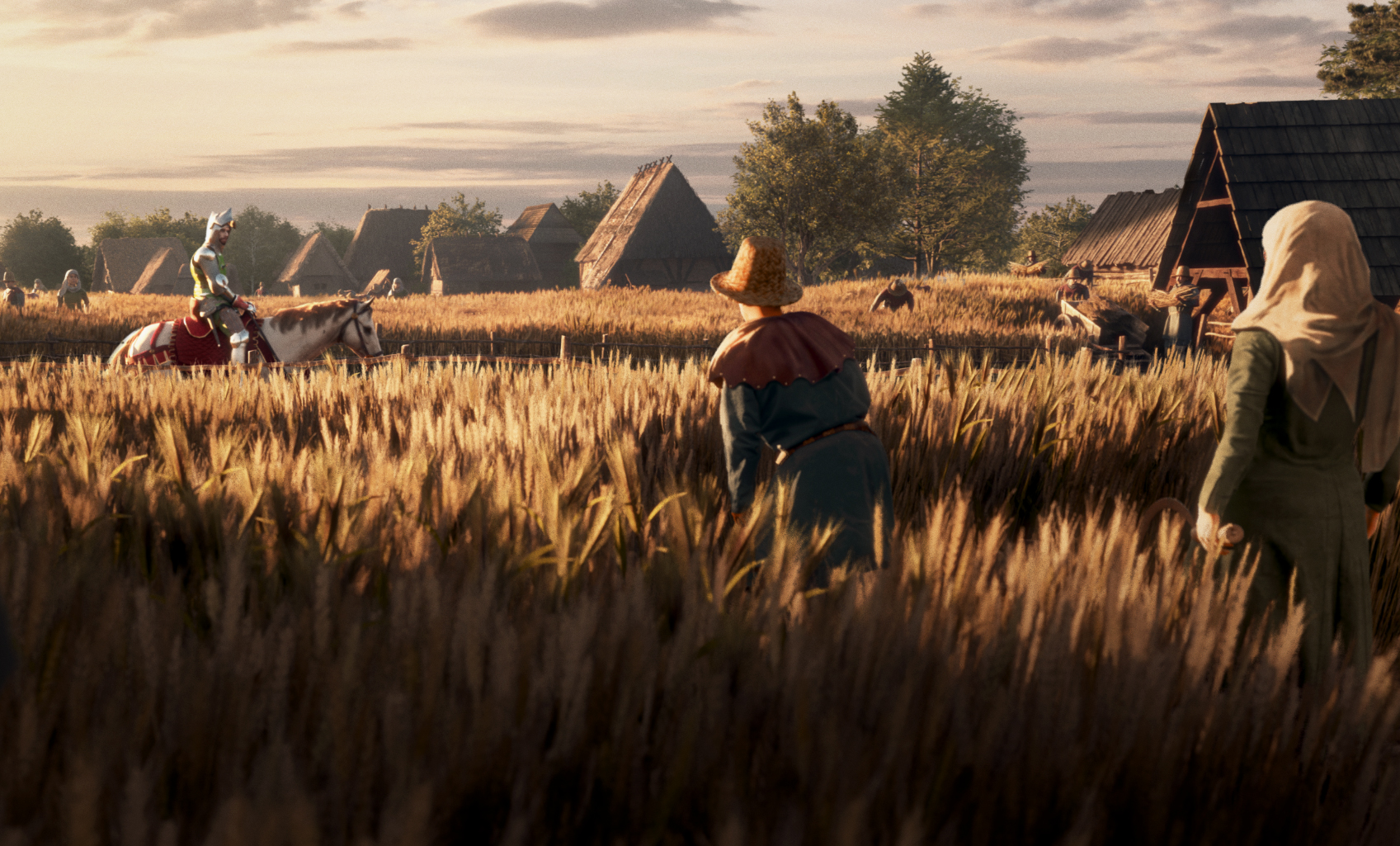
Fraser: Once you've built your manor, you can start taxing your peasants, but consider this: maybe don't? Your personal treasury can be used to build settler camps when claiming new regions or for hiring mercenaries, but most of the time it's just going to be sitting there, pointlessly growing while your villagers get frustrated. They hate taxes more than pretty much anything else, and if you aren't satisfying all of their needs this quibble might be enough to ruin your village's reputation, stalling immigration. The amount of treasury you gain through tax is also based on how much regional wealth your settlement has earned that month, so time your taxation tactically. Only turn on the money tap when you absolutely need it; otherwise, cut the peasants some slack. They're muddy and tired.






